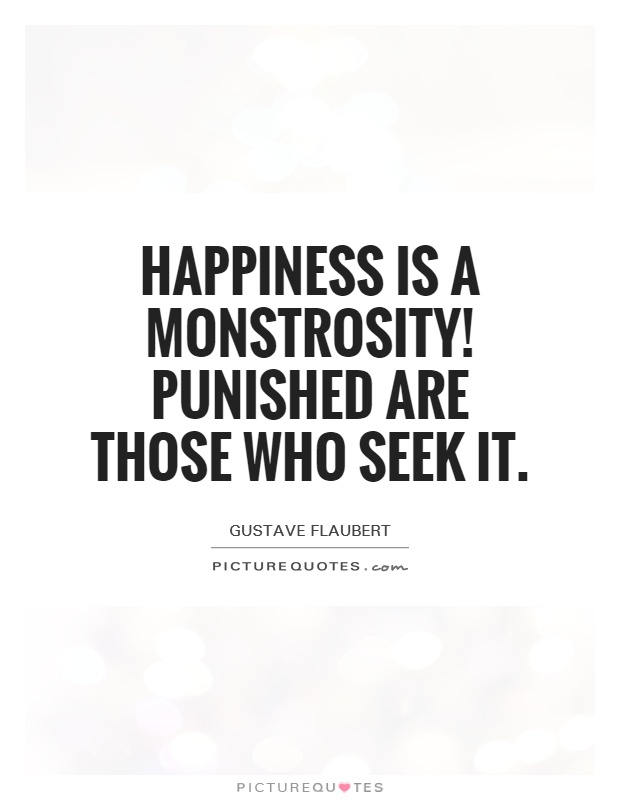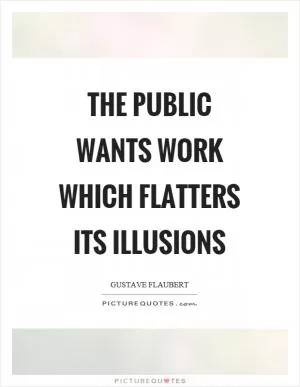Happiness is a monstrosity! Punished are those who seek it

Happiness is a monstrosity! Punished are those who seek it
In Gustave Flaubert's novel "Madame Bovary," the theme of happiness being a monstrosity is prevalent throughout the story. The protagonist, Emma Bovary, is constantly seeking happiness and fulfillment in her life, but her pursuit of it ultimately leads to her downfall and punishment.Emma is a woman who is dissatisfied with her mundane life as a country doctor's wife and yearns for excitement and passion. She believes that happiness lies in material possessions, romantic relationships, and social status. However, her relentless pursuit of these things only brings her temporary pleasure and ultimately leads to her ruin.
Flaubert portrays happiness as a monstrous force that consumes Emma and distorts her sense of reality. She becomes obsessed with the idea of living a glamorous and extravagant life, and she is willing to do whatever it takes to achieve it. This obsession blinds her to the consequences of her actions and leads her to make reckless decisions that ultimately destroy her.
Emma's punishment for seeking happiness comes in the form of financial ruin, social ostracism, and ultimately, death. Her reckless spending and infidelity lead to her husband's financial ruin and her own social downfall. She becomes isolated and desperate, unable to find the happiness she so desperately craves.
Flaubert uses Emma's story to critique the societal expectations placed on women during the 19th century and the dangers of seeking happiness in external sources. He suggests that true happiness cannot be found in material possessions or social status, but rather in self-acceptance and inner peace.












 Friendship Quotes
Friendship Quotes Love Quotes
Love Quotes Life Quotes
Life Quotes Funny Quotes
Funny Quotes Motivational Quotes
Motivational Quotes Inspirational Quotes
Inspirational Quotes